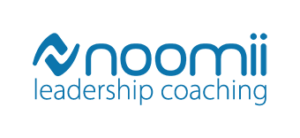
Posted on January 18, 2010 by Ann-Marie Docherty, One of Thousands of Executive Coaches on Noomii.
Measuring ROI of financial decisions for their effectiveness is globally accepted. Businesses still struggle to measure ‘behaviour’ based investment
Just what should we be measuring if seeking a return on investment from our coaching expenditure?
By now, most businesses understand that the results and benefits to be gained from coaching are delivered from actions, thoughts and deeds of those being coached. It is also a journey which is about to be undertaken by an individual or team towards understanding how it is possible to better harness the ‘power within’ to improve self awareness and the powerful impact these abilities can make on others.
Return on Investment
Typically this has always been a financial measure used by organisations to retroactively quantify how effective management decisions have been.
ROI though has also been used to prospectively value the effectiveness of proposed management investment decisions. Many organisations have struggled to measure qualitative results i.e. behaviour based results. Unfortunately, the elements of behavioural change from a coaching process do not lend themselves so readily to this kind of monetization or calculation. In part this is because Executives and Management achieve results through individual efforts.
When organisations consider implementing an Executive Coaching Program or Strategy, the question that may be on their mind is “How do we know if the coaching is working? And how do we measure success to know if our investment is working? Another way of asking the question is “How do you ‘value’ the effectiveness of an Executive Coaching Program or Strategy?
Disadvantage of Financial Measurement Only
When looking at the investment from a purely financial perspective, then your coaching program will have to compete with other financial ‘operating’ funding requests. In my experience, especially when things get tight, training and development are the first things to be pulled off the agenda. Whilst I understand the need to tighten belts, I fail to understand the short term thinking which basically supports the old argument that if you continue to do what you have always done then nothing will change. Development should be continuing to ensure you have the best skills, knowledge and abilities to position you for the future.
The Need for an Even Playing Field
If you consider one of the key senior management criteria for budget allocations is the comparative magnitude of the anticipated benefits derived from the proposed funding of decisions, then, why should the distinct benefits delivered from coaching investment not be considered of equal value?
In their experience of coaching, the Corby Group* rightly suggest, the anticipated benefits of positive improvement of an executive’s knowledge, behaviour, skills, self awareness etc must provide a line of sight to the organisation’s business agenda as a ‘value add’ proposition. I would further add to that view; I suggest that we also need to be forever mindful of a critical business area which fails to appear on any balance sheet – our intellectual property.
Example of Non Financial Measure
For example, the plans, learning objectives and actions for an executive who is accountable for the successful implementation of a ‘critical’ aspect of an organisations business or strategy, should be clearly tied to the measures of successful implementation or for their particular part in that process. The reality is that right now a good leader can bring the right knowledge, energy skills and commitment to an assignment; yet, they still do not appear to be immediately successful as many of the ‘moving’ parts they must manage still need to be brought together. For this reason, business should consider the true value of their ‘intangible’ assets.
*The ROI of Leadership/Executive Coaching, Bob Corbett, August 2008
Ann-Marie Docherty
Managing Director
Australasian Executive Coaching
+61411153972
mail@australasianexecutivecoaching.com
www.australasianexecutivecoaching.com
4 September 2008


